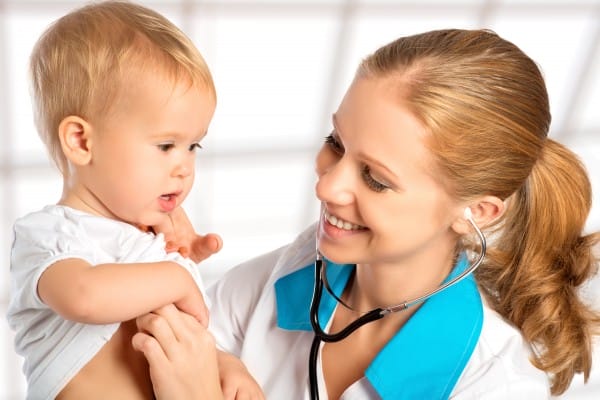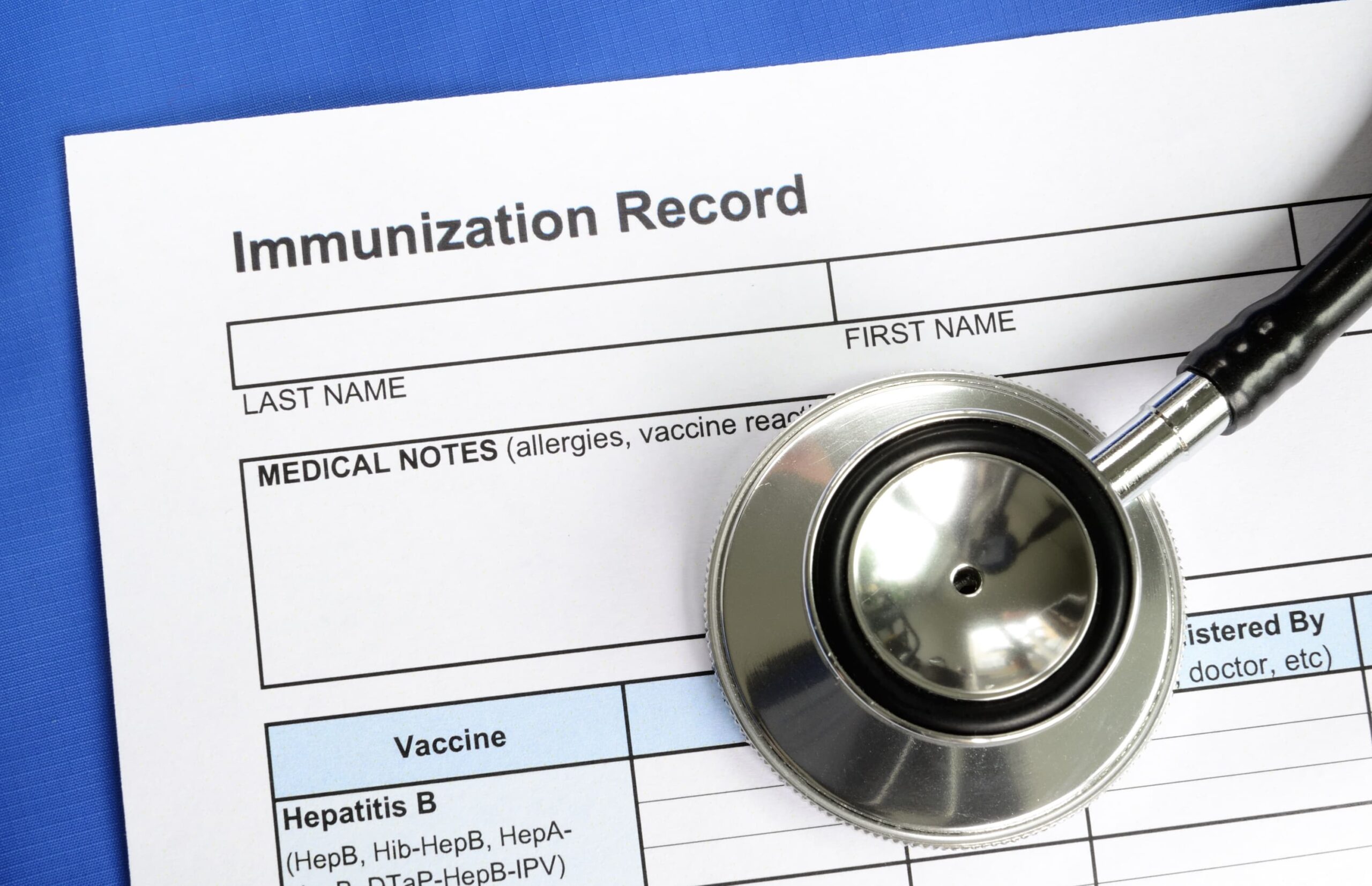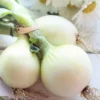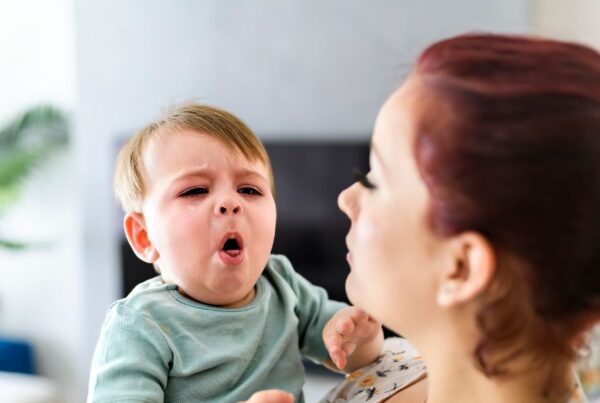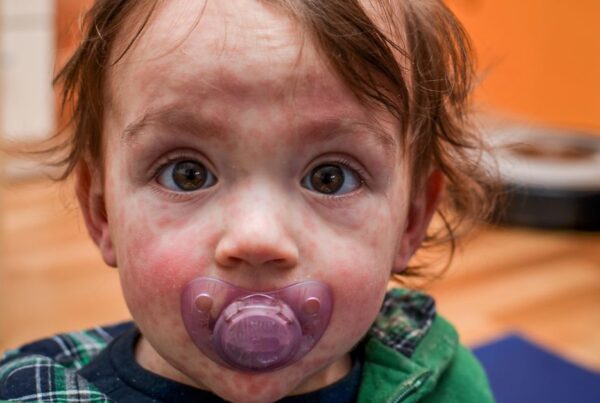What is RSV?
The respiratory syncytial virus (RSV) runs rampant late fall to early spring. For most, RSV shows mild cold-like symptoms of cough and runny nose. Unfortunately, for those under one year of age, RSV is the culprit and most common cause of bronchiolitis (inflammation of the small airways in the lung) and pneumonia (infection of the lungs). RSV invades mucosal surfaces of the nose, mouth, and the lungs. And if you’ve ever witnessed an infant struggle to breathe, you know it can be a feeling of intense anxiety.
CDC:
RSV can spread when an infected person coughs or sneezes. You can get infected if you get droplets from the cough or sneeze in your eyes, nose, or mouth, or if you touch a surface that has the virus on it, like a doorknob, and then touch your face before washing your hands. Additionally, it can spread through direct contact with the virus, like kissing the face of a child with RSV.
How To Test For RSV
I’ve been practicing medicine for over a decade now, and this winter I’ve had more RSV patients than I’ve ever had. I use a very sensitive test- RSV PCR testing if I feel symptoms of the child warrant testing. It’s super quick and most kiddos don’t even realize I’ve swabbed them because I am so quick!
RSV Treatment
RSV is a virus, so there are no antibiotics to prescribe for this nor is there a vaccine to prevent it. BUT, I will tell you that you can support your Little’s immune system to ensure you are protecting your child from not only RSV but also all viruses, including the flu, this winter season.
Easy Proactive Home Remedies
I suggest to all parents of my lil’ patients to be proactive with their immune health to help prevent/minimize symptoms of RSV.
- First, make sure your kiddo is eating the most nutritious food, full of vitamins and minerals.
- Watch out for the obvious pesticides, so make sure you are buying organic (if the food is listed in this year’s dirty dozen).
- Make sure to keep sugar to a minimum. And I don’t mean the sugar that comes from fruit, I mean table sugar, as it greatly reduces your child’s immune system capabilities. I’d like to note, if you are formula feeding, make sure the formula has a limited amount of sugar because a recent study in the British Dental Journal showed baby formula has more sugar per serving than a glass of soda. I recommend Holle if you have access to it.
- Ensure your child is getting adequate sleep, so their immune system has time to work, rest, and recover.
- Hydration is key! I live in Arizona, so dehydration happens and I don’t even realize it some days. Make sure your kiddo has several wet diapers per day, and if potty trained, is actively drinking fluids (water please 🙏).
- MOST IMPORTANT: DO NOT LET ANYONE KISS YOUR BABY!!!! RSV is INCREDIBLY easy to spread from adults to children, just by kissing them! I know grandma wants to kiss her little darling bundle, BUT during RSV and FLU season, I highly recommend against it.
Easy Supplement Immune Supports
The following immune supports work wonders to support your kiddo’s immune system and are safe in infants and children. (Always check with your pediatrician before starting new supplements.)
✅ Vitamin A
- maintains primary mucosal barrier to microorganisms.
- stimulates and supports natural killer cell activity, phagocytosis, and antibody production.
- counters stress-induced inhibition of thymic function.
- enhances antiviral activity.
✅ Vitamin D
- modulates the innate and adaptive immune responses.
- enhances immune response to infection.
- decreases production of inflammatory cytokines (IL-17, IL-21).
- increases production of anti-inflammatory cytokines (IL-10).
✅ Vitamin C
- enhances T-cell function and increases phagocytosis.
- antioxidant protection of the cells.
✅ Zinc
- plays an essential role in the proliferation of immune cells.
✅ Elderberry
- Reduces duration of cold and its symptoms.
- antiviral.
✅ Probiotics (most specifically Lactobacillis)
- decreases the elevated expression of pro-inflammatory cytokines in the lung upon RSV infection
- prophylactic potential against RSV infection
Oh parents, I hope this helps! I don’t have time to write a ton (I’ve got a new Little, myself), but I hope what I write resonates with you and gives you some direction for ensuring health to you and your kiddos! ☺️
References:
1.Ramirez I et al. Effect of Ascorbic acid in vitro on lymphocyte reactivity to mitogens. J Nutr 1980; 110:2207-2215.
2.Levine M et al. Vitamin C harmacokinetics in healthy volunteers: evidence for a recommended dietary allowance. Proc. Natl. Acad. Sci. 1996; 93:3704-3709.
3.Ongsakul M et al. Impaired blood clearance of bacteria and phagocytic activity in vitamin A deficient rats. Proc. Soc Exp. Med. 1985; 178:204-208.
4.Ross AC and Stephensen CB. Vitamin A and retinoids in antiviral responses. FASEB J 1996; 10:979-985.
5.Aggett P J and Comerford JG. Zinc and human health. Nutrition Rev. 1995; 53:S16-S22.
6.Aranow C. Vitamin D and the immune system. J Investig Med. 2011;59(6):881–886. doi:10.2310/JIM.0b013e31821b8755
7.Tiralongo E, Wee SS, Lea RA. Elderberry Supplementation Reduces Cold Duration and Symptoms in Air-Travellers: A Randomized, Double-Blind Placebo-Controlled Clinical Trial. Nutrients. 2016;8(4):182. Published 2016 Mar 24. doi:10.3390/nu8040182
8. Eguchi, K., Fujitani, N., Nakagawa, H. et al. Prevention of respiratory syncytial virus infection with probiotic lactic acid bacterium Lactobacillus gasseri SBT2055. Sci Rep 9, 4812 (2019). https://doi.org/10.1038/s41598-019-39602-7
9. Bridge, G., Lomazzi, M. & Bedi, R. A cross-country exploratory study to investigate the labelling, energy, carbohydrate and sugar content of formula milk products marketed for infants. Br Dent J 228, 198–212 (2020). https://doi.org/10.1038/s41415-020-1252-0

